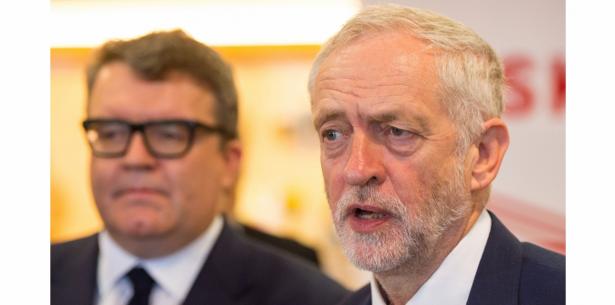Huge numbers of Labour Party members will back Fire Brigades Union leader Matt Wrack in demanding action over Labour’s leaked internal report on the handling of anti-semitism complaints.
The new leadership may have announced an investigation, but with copies now circulating freely, members and supporters are drawing their own conclusions.
Pages upon pages of emails and texts expose in stark detail how some of the party’s most senior officials acted to sabotage the Jeremy Corbyn leadership, obstruct everything it tried to do, direct vile abuse at staff and activists perceived to be supportive of Corbyn and express contempt for the members whose fees paid their salaries.
Most shockingly of all for those who pounded the streets, knocked on doors and phone banked for Labour, the report exposes top staff working against election victory, running a secret campaign to protect rightwingers in safe seats at the expense of winnable marginals, voicing growing dismay as Labour in 2017 closed the gap with the Tories and reacting with fury when the party broke Theresa May’s majority.
Much of this behaviour was known, or at least suspected. Former general secretary Iain McNicol’s hostility to Corbyn was clear from the sweeping purges of party members that took place during the 2015 and 2016 leadership elections.
But the detail of factional, nasty and downright treacherous behaviour is now available to read in black and white, in the words of the culprits themselves.
The response from some Labour members will be to demand a reckoning, to insist that those exposed in this report never hold office in the Labour Party again.
Keir Starmer’s claims to wish to unite the party will certainly amount to nothing if behaviour of this sort is ignored or even rewarded.
Many others talk of leaving Labour altogether, appalled at the sacrifices they made to support a party whose full-time machine was working to undermine their every effort. The Labour right of course would welcome a smaller party, a more inactive membership.
What should be clear to everyone, though, is that from the moment Corbyn’s name got onto the ballot, there was a ruthless struggle going on.
The Labour officials recorded mocking proposals to raise corporation tax or renationalise the railways stood for something entirely different to the leader, the affiliated unions or indeed the vast majority of members.
Campaigns such as the Democracy Roadshow pushed for greater internal party democracy in the selection of candidates for council and parliamentary seats in part to address this perceived gulf between the membership and elected officials.
At times, issues over candidate selection were presented as pitting members against organised labour (the trade unions) in a struggle for influence.
But that unhelpful dividing line only serves to obscure the real class division that explains why Labour’s internal struggles damaged it so much more than Tory infighting does their party.
The Corbyn project was about winning a socialist government, one which would redistribute wealth and power to ordinary people. It was a serious threat to the British Establishment.
Yet that Establishment, the ruling class and its institutions, managers, propagandists and hangers on, commanded almost as much loyalty in the upper echelons of the Labour Party as it did among Conservatives.
The records of Labour officials expressing preference for a Tory victory to a Corbyn one show treachery to their party and its members, but loyalty to a capitalist system they are used to being part of running.
Indignation at their actions is not enough. The left has to learn from the ways in which the right secured Corbyn’s defeat: its understanding that there was a real clash of class interests and its determination to ensure the ruling class won.
By comparison, much of the left engaged in a futile effort to bury real differences and appease an irreconcilable enemy.
As long as we keep making such mistakes, we will keep losing.


Spread the word